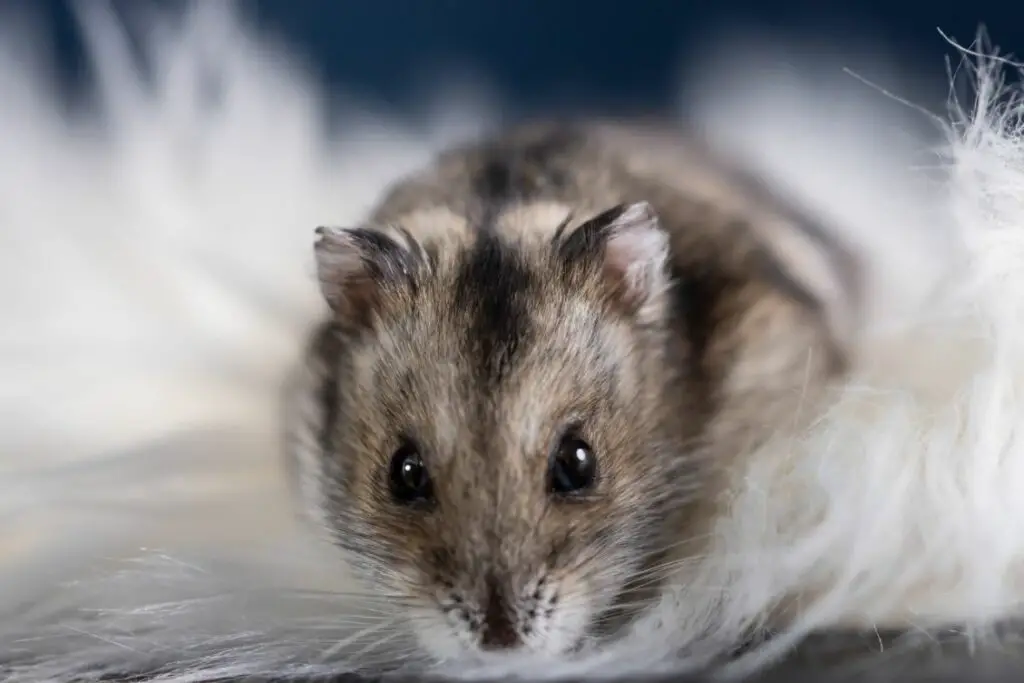Hamsters are adorable little creatures that make great pets. They are easy to care for and provide endless entertainment with their playful antics.
However, when it comes to their diet, many owners are unsure what to feed them. While commercial hamster food is readily available and a good option, many owners wonder if hamsters can eat insects.
In this blog post, we will explore the possibilities of feeding insects to hamsters and the benefits it may have for their overall health and well-being.

What Do Hamsters Eat?
Before we dive into the topic of insects, let’s first discuss what hamsters typically eat. Hamsters are omnivores, which means they eat both plants and animals.
In the wild, their diet consists of seeds, grains, fruits, and insects. As pets, hamsters can be fed a commercial diet that is specifically formulated for their nutritional needs. This diet usually consists of pellets, seeds, and dried fruits and vegetables.
Natural Diet of Hamsters
As mentioned, hamsters eat insects in the wild as part of their natural diet. Insects provide a source of protein and other essential nutrients that hamsters need to survive. However, it’s important to note that not all insects are safe for hamsters to consume, and some may even be toxic.
Types of Insects Hamsters Eat
While hamsters can eat a variety of insects, some are better than others. Here are a few of the most common insects that hamsters can safely consume:
Crickets
Crickets are a popular choice for pet owners who want to add some variety to their hamster’s diet.
They are high in protein and low in fat, making them a healthy snack for hamsters.
However, it’s important to only feed your hamster live crickets and to supervise them while they eat to ensure they don’t injure themselves.
Mealworms
Mealworms are another popular choice for hamster owners. They are high in protein and low in fat, making them a healthy snack for hamsters.
Mealworms can be purchased live or dried, but it’s important to avoid feeding your hamster too many as they can be high in phosphorus, which can cause health issues if consumed in excess.
Waxworms
Waxworms are a high-fat treat that hamsters love. While they are not as high in protein as crickets or mealworms, they are still a good addition to a hamster’s diet in moderation.
Benefits of Feeding Insects to Hamsters
Feeding insects to hamsters can have a number of benefits for their overall health and well-being. Here are just a few:
Protein Content
Insects are a great source of protein, which is essential for a hamster’s growth and development. Adding insects to their diet can help ensure they are getting enough protein to support their body’s needs.
Healthy Fats
Insects are also a good source of healthy fats, which are important for a hamster’s overall health. These fats can help keep their skin and coat healthy and shiny.
Enrichment and Mental Stimulation
Feeding insects to hamsters can also provide mental stimulation and enrichment. Hunting and foraging for their food is a natural behavior for hamsters and can help keep them mentally stimulated and engaged.
Boosts Immune System
Insects contain a variety of vitamins and minerals that can boost a hamster’s immune system. This can help keep them healthy and reduce the risk of illness.
How to Feed Insects to Hamsters?
If you have decided to add insects to your hamster’s diet, there are a few things to keep in mind.
Frequency of Feedings
Insects should be fed to hamsters in moderation. While they provide a number of benefits, they should not make up the bulk of a hamster’s diet. Feeding insects once or twice a week is a good place to start.
Precautions and Safety Measures
When feeding insects to hamsters, it’s important to take precautions to ensure their safety. In many cases it’s best to feed them live insects and supervise them while they eat to ensure they don’t injure themselves. It’s also important to avoid feeding them insects that have been exposed to pesticides or other chemicals.
Preparing Insects for Hamster Consumption
If you are feeding your hamster live crickets or mealworms, you may need to prepare them before feeding. This can include dusting them with calcium powder or gut-loading them with nutrient-rich foods.
Conclusion
Feeding insects to hamsters can be a great way to add variety to their diet and provide them with essential nutrients.
However, it’s important to do so in moderation and take precautions to ensure their safety. Even though hamsters can indeed eat insects and do so in the wild, they do not necessarily need them to survive in captivity.
If you are considering adding insects to your hamster’s diet, consult with your veterinarian to ensure it’s a safe and appropriate choice for your pet.
- How Long Do American Eskimo Dogs Live? Important Factors and Care Tips - September 29, 2023
- Do American Bulldogs Need Grooming? Essential Tips and Care Guidelines - September 29, 2023
- Do Bengal Cats Enjoy Playing? Essential Tips for Keeping Them Active - September 29, 2023